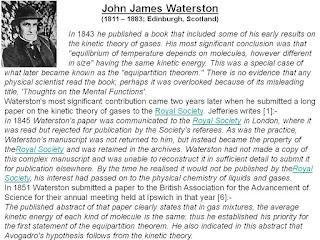Last year, it was a great privilege for me to talk about Maxwell's life and work at Parton and at Strathclyde University. Ranked alongside Newton and Einstein, Maxwell's genius is evident in everything he did. Through five generations, Maxwell's ancestors occupied a central place in the cultural and intellectual life of Scotland. He had a difficult childhood but that did not appear to diminish his yearning to get to the bottom of everything he touched. Inspired by his father and able teachers, Maxwell's work changed the course of physics in the 19th Century and laid the foundations for the development of new technological advances of the 20th Century. Einstein's theory of relativity owes its origin to Maxwell's equations of the electromagnetic field.
The challenge in talking about Maxwell to a general, non-scientific audience is to convey the deep impact that his highly mathematical theories made on the contemporary scientific community. There is a fine balance to be struck and I hope that I have been able to achieve this. The following slides represent a 120 minute talk on Maxwell's life and work - not one person left the hall and that is a good recommendation.
(Click on a slide to view its bigger image)
I have added the next two slides to introduce John Waterston and John Herapath who had published ideas on the molecular theory of gases. Maxwell's work was done independently and was much more detailed with the introduction of statistical ideas etc.
























































No comments:
Post a Comment